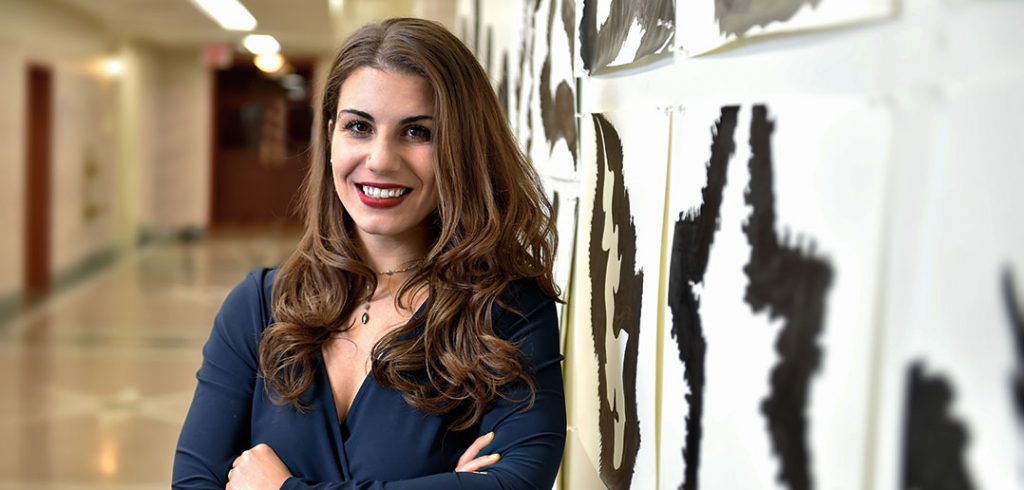A Teen Vogue columnist focuses on the role of young people in politics
For Lauren Duca, simply being a member of the media industry has become a form of political activism.
A columnist and contributing editor at Teen Vogue, Duca came into the spotlight when one of her articles, “Donald Trump Is Gaslighting America,” went viral last December. Since then, she’s been praised on Chelsea Handler’s Netflix show, berated on Tucker Carlson Tonight, trolled on Twitter, and profiled in The New York Times.
So, when she returned to Rose Hill on March 6, many of the almost 50 communications students who gathered to hear her speak nodded in agreement when she made the connection between their intended field and political engagement.
Duca encouraged students to be dedicated to both the truth and their own voice, which she said she first started developing at the paper, a student publication at Fordham.
“The conversation online is often just about asserting things,” she said. “People do things like take each other’s anonymous sources. It spreads a contagion of unreliability. You have to remember that things are taken and distorted much quicker online, so think about your journalistic responsibility there. You want to be empowering the public with truthful information—especially now, when there’s so little trust in the media.”
Duca said that critics who assume that she and other young women can’t write about politics because they also write about celebrity culture are “denying me access to a political conversation and participating in this stealthy condescension that many women feel is familiar.” That’s why her Teen Vogue column is called “Thigh-High Politics.” She said she’s proud to work for a magazine that covers everything from shampoo commercials to the Pulse nightclub shooting, and that acknowledges that all of these are “just another piece of your world.”
Throughout the talk, she urged students to start approaching contentious conversations differently and to develop a more nuanced view of both the media and the world.
“Call-out culture is unproductive. Everything is complex. Checking structures of power is important, but think about what the full story is. It’s easy to just be mad,” Duca said. “Nobody is unbiased. Only the facts are unbiased.”

